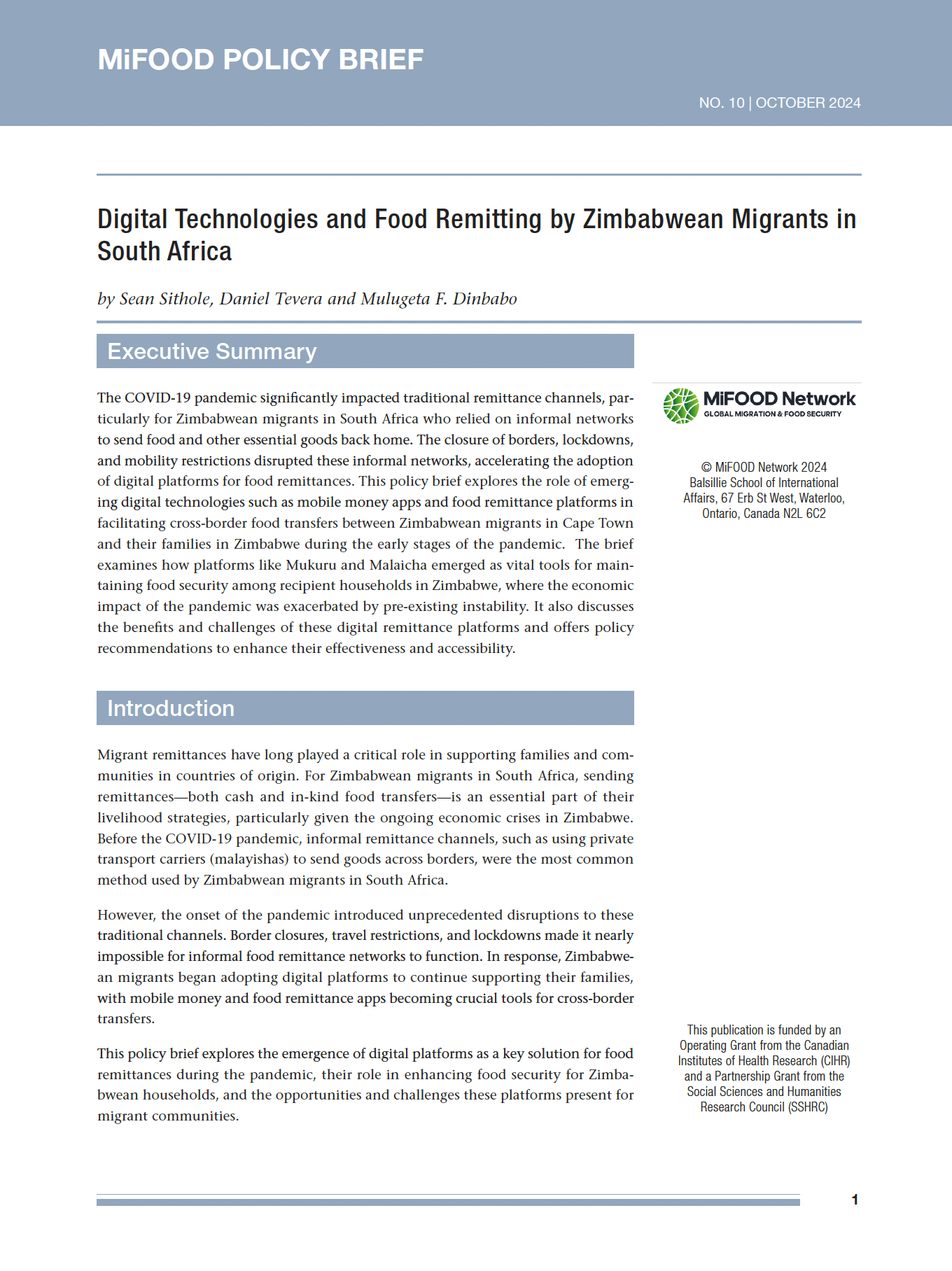The COVID-19 pandemic significantly impacted traditional remittance channels, particularly for Zimbabwean migrants in South Africa who relied on informal networks to send food and other essential goods back home. The closure of borders, lockdowns, and mobility restrictions disrupted these informal networks, accelerating the adoption of digital platforms for food remittances. This policy brief explores the role of emerging digital technologies such as mobile money apps and food remittance platforms in facilitating cross-border food transfers between Zimbabwean migrants in Cape Town and their families in Zimbabwe during the early stages of the pandemic. The brief examines how platforms like Mukuru and Malaicha emerged as vital tools for maintaining food security among recipient households in Zimbabwe, where the economic impact of the pandemic was exacerbated by pre-existing instability. It also discusses the benefits and challenges of these digital remittance platforms and offers policy recommendations to enhance their effectiveness and accessibility.

